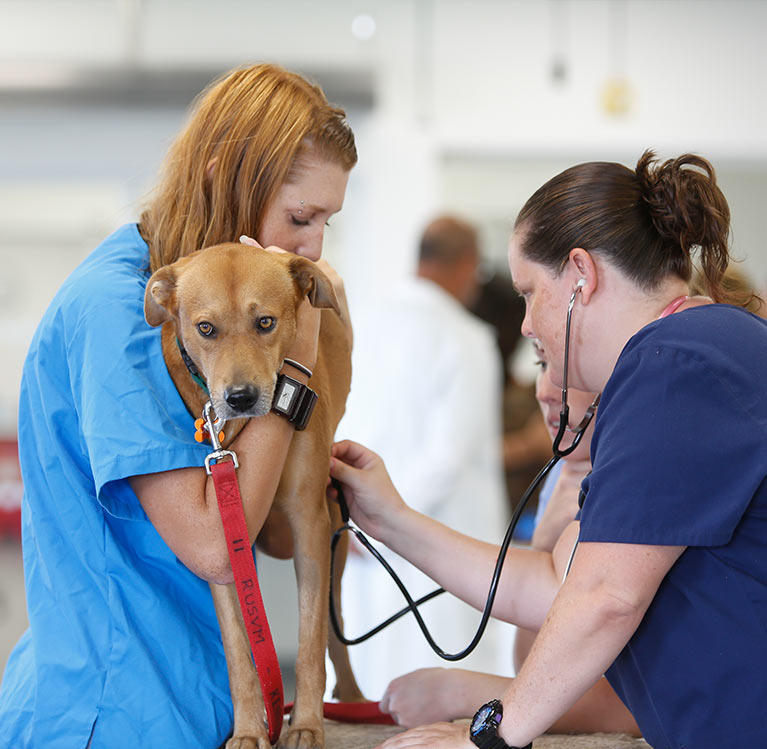Veterinary Cancer Specialist answers common pet cancer questions
Wiki Article
The Value of Very Early Discovery: Insights From a Veterinary Oncologist
Early discovery of cancer in pet dogs is an important topic for pet proprietors and veterinary professionals alike. Vet oncologists emphasize the significance of acknowledging subtle indicators that might suggest major health issues. Common signs and symptoms typically go undetected up until they escalate. Recognizing these very early warning indications and innovations in analysis methods can make a substantial distinction. What steps can family pet owners take to enhance their family pets' opportunities of very early diagnosis and much better therapy results?Comprehending Cancer Cells in Pets: Typical Types and Signs
While several family pet owners may not understand it, cancer is a significant health worry influencing pets, much like it does in humans. Usual kinds of cancer cells in family pets include lymphoma, pole cell growths, osteosarcoma, and mammary tumors. These hatreds can materialize in different ways, relying on their area and kind. Symptoms commonly include unexplained weight management, relentless vomiting, changes in hunger, or unusual lumps and bumps. Animals might also exhibit sleepiness, problem breathing, or hesitation to exercise, which can show underlying health problems. Early indications can be subtle, making it necessary for animal proprietors to be watchful of their animals' habits and physical problem. Understanding these usual types and associated signs can encourage proprietors to seek vet treatment promptly, possibly bring about earlier diagnosis and therapy options. Recognizing the signs of cancer cells in family pets is an essential step towards improving their health and high quality of life.The Duty of Vet Oncologists in Very Early Detection
Veterinary oncologists play a necessary function in the very early detection of cancer in animals, as their specialized training furnishes them with the skills required to determine refined indications that may be overlooked by basic practitioners. They make use of a combination of scientific proficiency and progressed diagnostic devices to assess people completely - Veterinary Oncology Services. By identifying early symptoms and risk factors, oncologists can assist pet dog owners towards timely interventions, boosting the opportunities of successful therapyMoreover, veterinary oncologists frequently work together with basic professionals to develop screening methods tailored to specific types or age, boosting the performance of very early discovery initiatives. They inform animal owners on the value of routine check-ups and awareness of modifications in habits or physical condition. Via these proactive steps, vet oncologists substantially add to improving end results for animals diagnosed with cancer, stressing the essential nature of their role in veterinary medical care.
Advancements in Diagnostic Techniques for Pet Cancer
Improvements in analysis techniques have markedly enhanced the capability to find cancer cells in pets at earlier stages. Strategies such as sophisticated imaging, including MRI and CT scans, supply comprehensive interior views, enabling veterinarians to identify tumors that may not be apparent. In addition, the growth of minimally intrusive procedures, such as great needle aspirates and biopsies, allows exact sampling of cells for histopathological analysis with minimized stress and anxiety for the animal.Arising molecular diagnostics, consisting of hereditary screening and biomarker identification, are changing the landscape of vet oncology. These techniques can identify details cancer types and predict feedbacks to treatment, promoting personalized treatment plans. Moreover, innovations in lab techniques, such as liquid biopsies, are starting to supply non-invasive options for monitoring growth development and treatment effectiveness. Jointly, these technologies stand for a considerable jump ahead in vet medication, stressing the critical function of early detection in improving results for family pets diagnosed with cancer.
How Animal Owners Can Acknowledge Indication
Exactly how can animal owners end up being browse around this web-site watchful in identifying potential indication of cancer cells? Awareness of behavior and physical changes in animals is essential. Usual indications consist of uncommon lethargy, loss of appetite, or abrupt weight adjustments. Family pet owners should likewise focus on relentless throwing up or looseness of the bowels, which might signify underlying concerns.Modifications in the skin, such as lumps, bumps, or sores that do not recover, necessitate instant vet attention. In addition, proprietors need to keep in mind adjustments in drinking practices, increased peeing, or trouble in breathing. Inexplicable limping or discomfort might likewise be indicators of even more significant problems.
Normal veterinary examinations can assist determine these caution indications early. By maintaining a close monitoring of their animals' health and wellness and behavior, proprietors can play an essential function in very early discovery, possibly leading to better end results must cancer be identified. Recognizing these signs may greatly impact a pet's high quality of life.
The Effect of Very Early Detection on Therapy End Results
Early detection of cancer cells in animals plays an essential function in establishing treatment results, as it commonly permits a larger variety of restorative choices. When cancer cells is diagnosed in its onset, vets can execute much less invasive treatments, increasing the chance of successful intervention. Early-stage cancers may additionally respond better to chemotherapy or radiation, leading to boosted survival prices and general high quality of life for the animal.In addition, punctual medical diagnosis helps with a much more tailored treatment plan, aligning with the details needs of the animal. This can include tailored medication programs or surgical interventions that are much less aggressive. Conversely, late-stage detection typically causes restricted alternatives, extra hostile treatments, and poorer diagnoses. As a result, the value of early discovery can not be overstated; it fundamentally modifies the trajectory of treatment, making it important for pet owners to stay watchful for any type of signs of illness in their precious buddies.
Frequently Asked Inquiries

Just How Can Diet Regimen Influence Cancer Cells Danger in Pets?
Diet regimen substantially influences cancer threat in pet dogs, as particular nutrients and food kinds can either inhibit or promote lump growth. A well balanced, nutrient-rich diet regimen may aid reduce the possibility of creating cancer in pets.
Are Certain Types Much More Prone to Cancer cells?
Certain pet types, such as Golden Retrievers and Martials artists, show greater cancer vulnerability as a result of genetic proneness. Likewise, some feline types also show boosted cancer cells threats, highlighting the significance of breed-specific wellness recognition among animal owners.What Are the Costs Related To Early Cancer Cells Discovery?
The expenses related to early cancer detection can vary significantly, encompassing diagnostic examinations, appointments, and possible therapies - Pet Cancer Surgery. Purchasing these services typically causes far better health results, ultimately saving money on more extensive future clinical expendituresCan Vaccines Protect Against Cancer Cells in Pets?


Vaccinations might minimize the threat of certain cancers cells in family pets, particularly those linked to viral infections. Nonetheless, their performance varies, and animal owners ought to speak with veterinarians for customized advice concerning vaccination and cancer avoidance techniques.
Exactly How Usually Should Family Pets Be Screened for Cancer cells?
Animals must normally be screened for cancer cells annually, particularly as they age or if they show risk factors. Routine veterinary exams can help determine potential issues early, improving treatment results and total wellness administration.Early discovery of cancer cells in pet dogs is an important subject for pet proprietors and vet specialists alike. Early indicators can be subtle, advice making it essential for pet owners to be observant of their pets' behaviors and physical problem. Veterinary oncologists play check an important role in the very early discovery of cancer in animals, as their specialized training furnishes them with the abilities necessary to determine subtle indicators that might be neglected by general practitioners. By maintaining a close observation of their animals' wellness and actions, proprietors can play a crucial duty in early discovery, potentially leading to much better end results should cancer cells be identified. Early detection of cancer in animals plays a crucial function in determining therapy outcomes, as it often permits for a larger range of healing options.
Report this wiki page